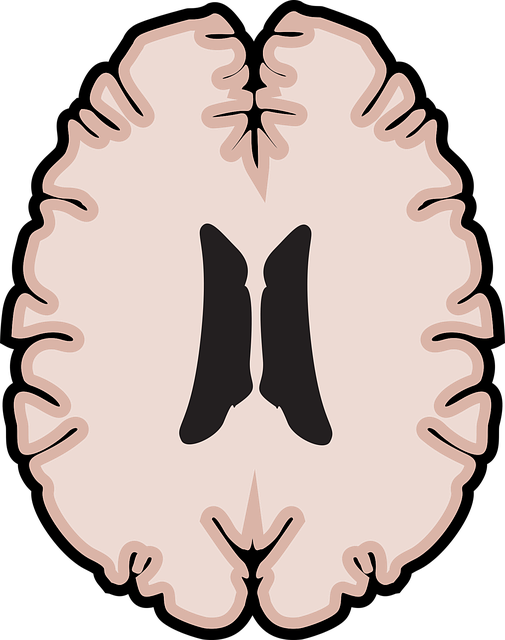Therapy for adults with eating disorders presents unique challenges due to co-morbidities like depression, anxiety, and low self-esteem. Effective communication strategies, compassionate environments, and risk management planning are crucial for success. Mental health professionals must balance potential harms and benefits while focusing on enhancing patients' mental well-being and quality of life through tailored interventions adhering to evidence-based practices. Comprehensive risk assessment considers client vulnerabilities, professional risks, and setting factors, enabling effective mitigation strategies for both clients and practitioners. Continuous monitoring, adaptability, and personalized treatment adjustments based on progress are key to improving outcomes in therapy for adults with eating disorders.
Mental health professionals working with adults suffering from eating disorders face unique challenges. This article delves into a comprehensive risk assessment framework, focusing on therapy for adults with eating disorders. We explore specific risks, from client factors like past trauma to professional vulnerabilities and clinical settings. Learn how to assess potential harms and benefits, identify key vulnerabilities, develop robust risk management strategies, and continually monitor and adapt practices to ensure optimal patient outcomes.
- Understanding the Unique Risks in Adult Eating Disorder Therapy
- Assessing Potential Harms and Benefits for Patients
- Identifying Vulnerabilities: Client, Professional, and Setting Factors
- Developing Comprehensive Risk Management Strategies
- Continuous Monitoring and Adaptation in Clinical Practice
Understanding the Unique Risks in Adult Eating Disorder Therapy

Therapy for adults with eating disorders presents unique challenges and risks that mental health professionals must be well-prepared to navigate. Unlike working with other populations, such as adolescents or those struggling with substance use disorders, adults who present with anorexia nervosa, bulimia nervosa, or binge eating disorder often have complex co-morbidities, including depression, anxiety, and low self-esteem. These underlying conditions can significantly impact treatment outcomes and require a nuanced approach.
Effective communication strategies are at the heart of successful therapy for adults with eating disorders. Mental health professionals must foster an open and non-judgmental environment where clients feel safe to discuss their experiences honestly. Incorporating compassion cultivation practices into treatment plans can enhance therapeutic relationships and improve patient engagement. Additionally, risk management planning is crucial to ensure the safety of both the client and the therapist during potentially challenging situations. By integrating these strategies, mental health professionals can provide comprehensive care tailored to the unique needs of adults seeking therapy for eating disorders.
Assessing Potential Harms and Benefits for Patients

When conducting a risk assessment for mental health professionals treating adults with eating disorders, it’s crucial to carefully weigh both potential harms and benefits for patients. Therapy for adults with eating disorders often involves intense interventions aimed at significant weight gain and behavioral changes. This can lead to complications like physical health risks associated with rapid weight gain, especially in cases of severe anorexia nervosa. However, the primary focus should be on the patient’s mental well-being and quality of life improvement.
Benefits include reduced symptoms of mental illness, improved self-care practices, and enhanced overall functioning. Mental illness stigma reduction efforts play a significant role here, as creating a supportive environment encourages patients to openly discuss their struggles without fear of judgment. Moreover, a thorough risk assessment should consider the impact on patient trust and the therapeutic relationship, ensuring that interventions are tailored to individual needs while prioritizing safety and adherence to evidence-based practices, informed by Mental Health Policy Analysis and Advocacy.
Identifying Vulnerabilities: Client, Professional, and Setting Factors

Identifying vulnerabilities is a critical step in risk assessment for mental health professionals. This involves scrutinizing various factors that can impact a client’s therapy for adults eating disorders, as well as considering the professional and setting-related risks. Client factors include previous trauma, co-occurring mental health conditions, and family dynamics which may influence their emotional responses during therapy. Professional factors involve the therapist’s experience, training in specific treatment modalities, and self-care practices that can impact their ability to manage high-risk cases effectively. Setting factors, such as clinic policies on supervision, crisis intervention, and resources for co-occurring disorders, also play a significant role in risk management planning for mental health professionals.
Furthermore, understanding the interplay of these factors is essential for implementing effective risk mitigation strategies. For instance, social skills training and emotional well-being promotion techniques can be integrated into therapy sessions to enhance client coping mechanisms and resilience. Additionally, rigorous risk management planning should be in place, ensuring therapists are adequately supervised and supported within their clinical settings. This holistic approach not only improves client outcomes but also fosters a safer environment for mental health professionals to navigate complex cases effectively.
Developing Comprehensive Risk Management Strategies

In the field of mental health, where the well-being of clients is paramount, developing comprehensive risk management strategies is an indispensable aspect of practice. Mental health professionals, particularly those treating complex conditions like adult eating disorders, must be adept at assessing and mitigating risks to ensure safe and effective therapy. This involves a multifaceted approach that includes identifying potential hazards within the therapeutic relationship, such as boundary issues or countertransference, and implementing robust conflict resolution techniques. By fostering an environment conducive to open communication, professionals can address these challenges proactively, enhancing the stability of the treatment process.
Moreover, integrating stress reduction methods tailored to individual needs is a vital component of risk management. Therapy for adults with eating disorders often intertwines with elevated stress levels, anxiety, and emotional distress. Incorporating evidence-based practices aimed at calming minds and bodies can significantly reduce risks associated with relapsing or exacerbating symptoms. Through these strategies, mental health professionals not only support clients in navigating their current struggles but also empower them with tools to foster resilience and sustain long-term emotional healing processes.
Continuous Monitoring and Adaptation in Clinical Practice

In the dynamic field of mental health care, continuous monitoring and adaptation are vital to ensure effective therapy for adults with eating disorders. As new research emerges and best practices evolve, professionals must stay agile in their approach. This involves regularly evaluating client progress, staying abreast of emerging therapies, and being open to adjusting treatment plans based on individual needs and responses. Mental health awareness plays a crucial role in this process, fostering an environment where both the therapist and client can openly discuss challenges and modifications needed to optimize care.
By integrating continuous monitoring into clinical practice, professionals can better support individuals navigating the complexities of eating disorders. This proactive approach not only enhances the effectiveness of therapy but also promotes mental wellness. For instance, a Mental Wellness Podcast Series Production might highlight successful adaptation strategies, providing valuable insights for both practitioners and those seeking treatment, ultimately contributing to improved outcomes in the fight against these challenging conditions.
Mental health professionals play a vital role in treating adults with eating disorders, but they face unique risks. By understanding the specific dangers within this therapy, assessing patient harms and benefits, identifying vulnerabilities, and implementing robust risk management strategies, practitioners can ensure safe and effective care. Continuous monitoring and adaptability are key to navigating these complexities, ultimately enhancing outcomes for patients struggling with eating disorders. This comprehensive approach to risk assessment equips professionals with the tools to provide high-quality treatment in Therapy for Adults Eating Disorders.











